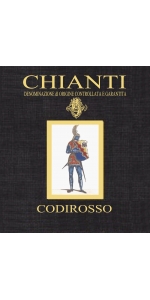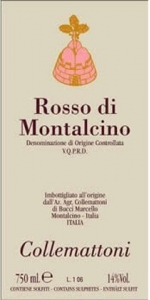Tenute Silvio Nardi Rosso di Montalcino 2022
6 bottles with free shipping for: $240.00
12 bottles with free shipping for: $396.00
| BUY MORE! SAVE MORE! | ||||||||||||||||||||
|
Tenute Silvio Nardi Rosso di Montalcino is made from 100 percent Nebbiolo.
Intense ruby red color. Aromas characterized by hints of ripe red fruits, and hints of spices. On the palate it is warm, soft, and full with strong but velvety integrated tannins. Good persistence.
Pairs with meat, cheese, and game.
- Tenute Silvio Nardi produces finely rendered Brunellos that highlight the specific terroir of the plots where they are grown.
- An area leader in developing the Brunello di Montalcino DOCG
- Vineyards include three prime estates around Montalcino.
- Emilia Nardi is a distinguished leader in Brunello and one of the most respected women in the wine world.
- Consulting Enologist Eric Boissenot is one of the world's top ten winemaking consultants
When Silvio Nardi purchased the Casale del Bosco estate in 1950, Montalcino was a little, rural village, the powerful Consorzio del Vino Brunello wasn’t yet an idea, and Nardi was the first "foreigner" to invest in Montalcino (he was from Umbria). Today, Montalcino is a renowned wine community with many international investors, and the 36 vineyard plots of Tenute Silvio Nardi extend east and west of the town on three separate estates. Since 1990, Silvio Nardi’s youngest daughter, Emilia Nardi, has focused on vineyard development and produced wines of depth that are profound expressions of the land they come from.
Silvio Nardi's youngest daughter, Emilia Nardi, has focused on vineyard development and produced wines of depth that are profound expressions of the land they come from.
A STRANGER IN MONTALCINO
Silvio Nardi’s father, Francesco Nardi, was a pioneer in the manufacture of agricultural tools in Umbria. In 1950 Silvio Nardi purchased the Casale del Bosco estate in Montalcino, Tuscany, and in 1958 produced his first bottles of Brunello di Montalcino. The family's deep ties to agriculture and the optimistic atmosphere of Montalcino in the late postwar years focused Nardi’s determination to produce a natural product of tradition and excellence. In 1962, he purchased the esteemed Manachiara estate, and in 1972, the Castello di Bibbiano estate.
BRUNELLO ON THE WORLD STAGE
In 1966, Brunello di Montalcino was among the first eight Italian wine producing zones to be designated a Denominazione di Origine Controllata (DOC). In 1967, Nardi was among the first members of the Consorzio del Vino Brunello, a voluntary association of producers who were determined to sustain and improve the quality of the wines of their zone as they gained prestige. In 1980, Brunello di Montalcino became the first Italian wine to receive Denominazione di Origine Controllata e Garantita (DOCG) status. The producers' awareness of the importance of astute viticultural practices and improved fermentation and maturation techniques led to a revolution in the 80s, with the development of more sophisticated viticultural and winemaking concepts. Brunello began to express its full potential.
PROGRESSIVE IDEAS
Silvio Nardi focused on his vineyards, taking advantage of wine growing and winemaking technology and pursuing his belief in the importance of specific terroir. The result was that in the 1980s, Casale del Bosco and its Brunello were among Montalcino's best. A new generation’s leadership began in 1991 when Silvio’s daughter Emilia Nardi took over winery management and spearhead new projects of clonal research and phenological ripeness. Like her father, Emilia is focused on highlighting terroir in the wines. The exceptional 1995 vintage was the introduction for Manachiara, a "cru" created from a specially-vinified selection of the finest grapes from the single vineyard of that name.
Tenute Silvio Nardi Brunello di Montalcino is made from 100 percent Sangiovese.
Quite intense ruby red color with garnet highlights. Intense and complex aromas at the nose, rich in ripe fruits, spices and toasted notes. Smooth and bodied at the palate, with great persistence, elegant and wide concentration. Tannins are dense and velvety.
Reviews:
Blackberry, black-truffle and black-cherry aromas follow through to a medium body with juicy fruit and a long, flavorful finish. Polished, pretty tannins here. Nicely crafted. Drink after 2026.
-James Suckling 94 Points
In the bottle with the burgundy-colored label, the Tenute Silvio Nardi 2019 Brunello di Montalcino is a layered and generous wine with black fruit, cherry, spice and a hint of Provençal mixed herbs on black olive. There are further hints of underbrush, crushed slate, petrichor from schistic soils, and toasted almond that adds some sweetness from French oak. The tannins are velvety and soft, but this wine is regularly balanced throughout. It's well made in an ample production of 150,000 bottles.
- Robert Parker's Wine Advocate 94 Points
A spicy version, whose black pepper and Szechuan peppercorn notes highlight the core cherry and strawberry flavors. Underbrush and iron accents also enter the mix, while this stays balanced and long as the tannins leave their grip on the finish.
-Wine Spectator 94 Points
Shibumi Knoll Pinot Noir Sonoma Coast is made from 100 percent Pinot Noir, 20 percent in new French Oak.
Review:
“Moving to the reds, the 2021 Pinot Noir Sonoma Coast comes from the Riddle Vineyard in Sonoma and spent 10 months in 20% new French oak. Black raspberries, sappy herbs, spring flowers, and some black tea notes all give way to a medium-bodied, elegant, vibrant Sonoma Pinot Noir with supple, fine-grained tannins and a great finish. It will age, but it's too good to resist today.”
Jeb Dunnuck, 96 points
W & J Graham's Vintage Port is made from 35% Touriga Nacional, 47% Touriga Franca and various others.
It is with great pleasure that Graham's announces the declaration of the 2000 Vintage, a wine that has been deemed to meet our very exacting standards, and one that shows every promise of living up to the reputation of the very best Vintage ports that the Twentieth Century provided.
This is a landmark wine for Graham's, not only being the first Vintage of a new millennium, but being the first Vintage wine to enjoy the extraordinary results achieved by the new robotic 'lagares' at Malvedos in the inaugural year of our remodelled winery. Significant also has been the decision to include a rather larger proportion of mature Touriga Francesa and Touriga Nacional from Vila Velha, a classic riverside Quinta a short distance downstream from Malvedos, and some spectacular old vine lots from Vale de Malhadas in the Upper Douro. These wines each from family-owned Quintas have been used to reinforce the predominant component from Malvedos and the traditional excellence of the Rio Torto lots from Lages, to produce a rounded and even blend in the hallmark rich Graham style.
Picking began at Malvedos on September 22nd and the last lagar was run off on October 10th, an unusually short and compact Vintage. Fruit arrived in good condition although yields were less than three quarters of a kilogram per vine, and the juice to skin ratio well below normal. 2000 was a year noted for a very low average yield across the Douro, and with the grapes unusually lacking in liquid, the extra amount of treading work required made it an ideal time to employ our new, tireless, mechanical treaders alongside the two original 1890 stone lagares still worked by human feet. It was evident early on in the Vintage from the colour and aroma of the fermenting musts that we were looking at a spectacular year, and after the usual waiting period of sixteen months or so to see how the lots would develop, we have now made our final selection and assembled the final blend.
The blend displays many of the typical Graham aromas of ripe plum and 'esteva' (gum cistus) and is pleasantly smooth on the palate despite its youth. It is full and rich in the mouth with fresh blackberry and red plum notes. Despite the hallmark Graham sweetness in the mouth the finish is long and clean.
As with all Graham Vintages, this is a wine made to last for years and the patience of laying down the wine for fifteen to twenty years will certainly be rewarded.
Review:
Taylor Fladgate Vintage Port.
On the palate, the wine has beautifully ripe tannins, which integrate perfectly into the mid-palate, providing both structure and volume, and then break out on the finish with a firm wiry, grip. The palate closes with a powerful tide of fresh, complex fruit flowing endlessly through the finish. In the 2018, the Taylor traits of fine fruit and inner power combine seamlessly with the ripeness and depth typical of the vintage.
This limited release wine is created from the fusion of two exceptional parcels of 70% Shiraz and 30% Cabernet Sauvignon. This classic blend is matured in the finest oak crafting an intriguing unison that captures the essence of the vineyard and highlights its unique varietal expression.
Vintage Overview
2013 was a very good season with predominantly mild, dry days. Yields were generally low and this did result in some excellent parcels of fruit being harvested. Vine-balance was carefully monitored, resulting in fruit that demonstrates the vibrancy and fruit-derived characters that we strive for in our wines. By all accounts it was a textbook vintage.
Tasting Notes
Deep inky purple in color. Aromas of blackberry, mocha, mint and spices. Lush, ripe palate dominated by black fruits, cherry and chocolate. An expansive palate with black fruits and nicely balanced by oak.
Made with the greatest dedication and care, select parcels were matured in new and seasoned French and American oak for up to 20 months prior to being selected for this blend. Individual barrels from our family estate that best demonstrate the intensity of our fruit, balanced by integrated oak were selected for the final blend, which was then bottled with minimal filtration.
Pairs well with venison, ribeye steak, lamb.
Review:
70% Shiraz and 30% Cabernet Sauvignon. Fruit and oak combine here to produce a powerful, full-bodied red with coffee, toast, blackberry and rick plum flavours pouring through the palate. Tannin taps gently at the brakes: peppercorn and pine notes add lift: creaminess to the texture keeps everything running smoothly. Screwcap. 14.5% alc.
Halliday Wine Companion 2020 94 Points
A deep and rich hue of golden straw gives the first clue that this is a serious Chardonnay. Aromas of pear, green apple, and lime peel jump out of the glass followed by more nuanced fragrances of orange blossom, ginger root, and brioche. The sensation on the palate casually demonstrates both broad depth and laser like focus. An assertive core of acid and saline minerality rests completely ensconced in rich flavors of pie crust, clotted cream, and burnt caramel. Drink now for fresh vibrance, or in ten years for wild complexity. This wine is a perfect white to be enjoyed year-round.
Review:
The 2021 MFN Blanc Chardonnay is very ripe in style with scents of banana chip, apple pie, jasmine, allspice and brown sugar. The full-bodied palate is packed with ripe, spicy fruits and plenty of refreshing acidity, and it finishes long with a satiny, mouth-coating texture. It's an old-school style reminiscent of Napa that fans of ripe, oaked Chardonnays will enjoy.
-Robert Parker 97 Points
Tenute Silvio Nardi Brunello di Montalcino is made from 100 percent Sangiovese.
Quite intense ruby red color with garnet highlights. Intense and complex aromas at the nose, rich in ripe fruits, spices and toasted notes. Smooth and bodied at the palate, with great persistence, elegant and wide concentration. Tannins are dense and velvety.
Reviews:
Blackberry, black-truffle and black-cherry aromas follow through to a medium body with juicy fruit and a long, flavorful finish. Polished, pretty tannins here. Nicely crafted. Drink after 2026.
-James Suckling 94 Points
In the bottle with the burgundy-colored label, the Tenute Silvio Nardi 2019 Brunello di Montalcino is a layered and generous wine with black fruit, cherry, spice and a hint of Provençal mixed herbs on black olive. There are further hints of underbrush, crushed slate, petrichor from schistic soils, and toasted almond that adds some sweetness from French oak. The tannins are velvety and soft, but this wine is regularly balanced throughout. It's well made in an ample production of 150,000 bottles.
- Robert Parker's Wine Advocate 94 Points
A spicy version, whose black pepper and Szechuan peppercorn notes highlight the core cherry and strawberry flavors. Underbrush and iron accents also enter the mix, while this stays balanced and long as the tannins leave their grip on the finish.
-Wine Spectator 94 Points
Tenute Mannino Etna Rosso Placo is made from 95% Nerello Mascalese and 5% Nerello Cappuccio. Vines are between 60 and 120 years old.
Nerello Mascalese and Nerello Cappuccio in this classic blend characterized by volcanic minerality. It is a wine with a brilliant ruby red color, an intense aroma with pleasing floral, pomegranate and graphite hints. Elegant tannins and a good juice give off an elegant and sincere tale of one of the best expressions of Sicilian reds.
Manual harvest in the second half of October. Long skin-contact maceration at controlled temperature, Spontaneous alcoholic and malolactic fermentation in stainless steel tanks.
Then the wine is aged in 1500 liter French Oak foudres and 500 liter Demi Muids barrels for 12 months.
Bernardins Beaumes de Venise Rouge Cru Cotes du Rhone is made from 65% Grenache, 25% Syrah, 5% Mourvedre and 5% Grenache Blanc.
Bright ruby color with cherry tinges. Complex black fruit aromas on the nose enhanced by spicy notes. Rounded palate with good length.
The wine is drinking well right now and can be kept for another 10 years.
Situation
Spreads out over the south-east side of the Dentelles de Montmirail hills, in Beaumes de Venise in the southern part of the Rhone valley.
Terroir
On a poor sandy, hungry and arid soil consisting of tender limestone and gritty zones of sandy mollasse.
In the vineyard
The vineyards and their terroir are the essence of our wines. This is where everything starts and where we focus our efforts throughout the year. You can’t make great wine without great grapes.
The viticulture is essentially done by hand. Five people work full-time in the vineyards. They are supplemented by seasonal employees who work during bunch thinning and the harvest in order to bring out the very best in our vines. Working by hand and the attention each vine gets are fundamental. Pruning, de-budding, trellising, leaf removal and picking are thus carried out by hand with the utmost care.
We prepare the soil by using good old-fashioned ploughing. Organic compost is made from grape marc (the discarded stalks and skins).
As a way of protecting the plants, we only use phytosanitary products when necessary and within strict guidelines by staggering the treatments appropriately, to minimise the amount of chemicals used. We prefer to use as much as possible manual and organic techniques . Leaving natural grass cover, removing buds and leaves from the vines, preserving biodiversity around the vineyard: olive, almond and cypress trees, wild rosemary and capers.
Winemaking
We make two red wines at the estate. Terroir wines shaped by the two classic Côtes du Rhône varieties: Grenache and Syrah. We don’t follow any winemaking recipe but are constantly searching for the perfect expression of terroir and each vintage’s particular characteristics. We don’t go for overripe grapes and over-extraction, as we think the wine has to stay refreshing and balanced.
Leaving the wine for 15 days in concrete vats, we try to gently extract the tannins and anthocyanins essential for the wine’s structure and colour. The wine doesn’t come into any contact with wood during ageing. This way the characteristics of our terroir can fully express
Serve with a meal especially red meat, game and cheese.
Bernardins Muscat Beaumes Venise VDN 100% Muscat petits grains (75% Blanc, 25% Red)
Copper/rose hue and ripe soft aromas of orange, spice and flowers. The wine is full bodied with the texture of silk and flavors of orange custard, white peach, pear, apricot, toffee and orange peel.
The vineyards and their terroir are the essence of our wines. This is where everything starts and where we focus our efforts throughout the year. You can’t make great wine without great grapes.
The viticulture is essentially done by hand. Five people work full-time in the vineyards. They are supplemented by seasonal employees who work during bunch thinning and the harvest in order to bring out the very best in our vines. Working by hand and the attention each vine gets are fundamental. Pruning, de-budding, trellising, leaf removal and picking are thus carried out by hand with the utmost care.
We prepare the soil by using good old-fashioned ploughing. Organic compost is made from grape marc (the discarded stalks and skins).
As a way of protecting the plants, we only use phytosanitary products when necessary and within strict guidelines by staggering the treatments appropriately, to minimise the amount of chemicals used. We prefer to use as much as possible manual and organic techniques . Leaving natural grass cover, removing buds and leaves from the vines, preserving biodiversity around the vineyard: olive, almond and cypress trees, wild rosemary and capers.
In the spirit of respecting traditional techniques and the best elements of modern technology, cellar manager Andrew Hall and his winemaker son Romain Hall take family traditions very seriously.
When making our wines, the Muscat de Beaumes de Venise plays a central role and requires great care. After picking the grapes by hand, we press them straightaway to ferment the juice without skins. We don’t add any yeasts and keep the alcoholic fermentation in check by temperature control. Vin Doux Naturel winemaking involves stopping fermentation to preserve the grapes’ natural sweetness. During vinification, we watch the vats day and night and add the fortifying spirit just at the right moment. At this stage, the wine’s final balance is at stake. The wine is then aged in stainless steel tanks for 6 months before bottling.
Codirosso Chianti is made from 90% Sangiovese, 7% Canaiolo, 3% Colorino.
Vinification: fermentation in stainless steel at controlled temperatures for 7 to 8 days with an additional 7 to 8 days on the skins. The juice is pumped over daily for 10 days at the beginning of the fermentation. The wine is then racked and goes through malolactic.
Ruby red color with purple reflections. Intense vinous bouquet with hints of violets and dark cherry fruit.The flavor is full of ripe fruit and a hint of spice. It is well balanced and dry. The finish is persistent and satisfying.
Food pairing: grilled, braised or roasted meats
Color: intense ruby red.
Bouquet:violet flowers, black cherry and wild black fruits.
Taste: warm, dry and with good balance.
Coming from a parcel with 8-13 year old vines planted in sandy clay and marl soils.
Harvest is 100% destemmed with a soft pressing, fermentation in stainless steel tanks at controlled temperature of 28-30°C, pumping over for the first week of maceration followed by skin-contact maceration for 20-25 days with rack and return technique (delestage).
Malolactic fermentation completed.
Wine is slightly filtered before bottling.
Pairs with steak, pheasants and strong cheese.
- back
Wolfberger Cremant d Alsace Brut NV is made with 90 % Pinot Blanc, 10% Pinot Auxerrois.
The production of sparkling wine was already known in Alsace in the early 1900's. The Appellation d’Origine Contrôlée (A.O.C.) Crémant d’Alsace began with an official decree in August 1976.
Pale golden color. Fine, persistent bubbles. Floral nose with a hint of spiciness, gentle fruitiness (peach, apricot), and lovely balance. Fruity and lively in the palate, it has a clean and crisp finish. This wine will suit any special occasion.
Review:
""Straw color. Bright, fruity, creamy aromas of green apple pastry, peaches in cream, and lemon chiffon with a supple, tangy, finely carbonated, dry-yet-fruity medium body and an effortless, amusing, medium-long white nuts, lime-pineapple sorbet, and minerals finish with no oak. A refreshing, tangy sparkling wine that will shine at the table."
-Beverage Testing Institute, 94 pts (Exceptional)
Alexandre M Mon Chenin Cuvee 23 NV is made from 100% Chenin Blanc.
Mon Chenin means "My Chenin". This is Alexandre Monmousseau's personal view of what the Chenin blanc grape from France is - full of floral and fresh white fruits, a palate of yellow fruits and floral flavors, finishing clean, fresh, and dry.
Serve as Apéritif, seafood, fishes with buttery sauce, Asian cuisine, hard cheeses.

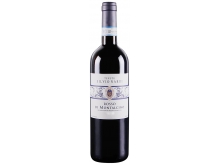
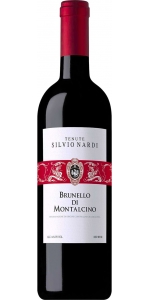
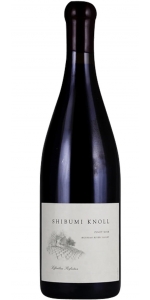
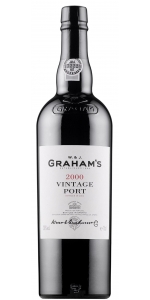
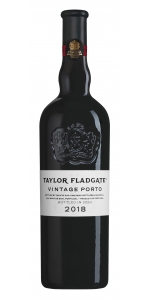
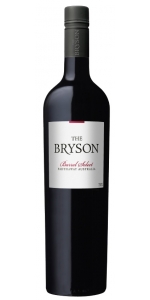
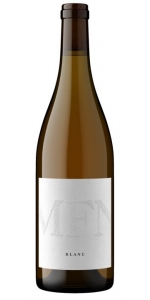
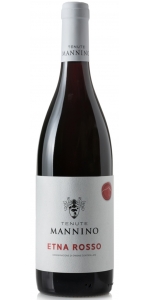
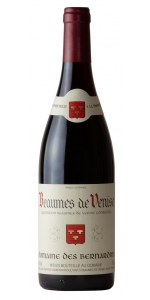
-150x300.jpg)
